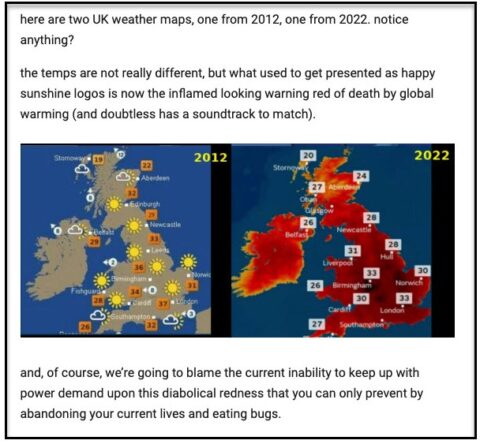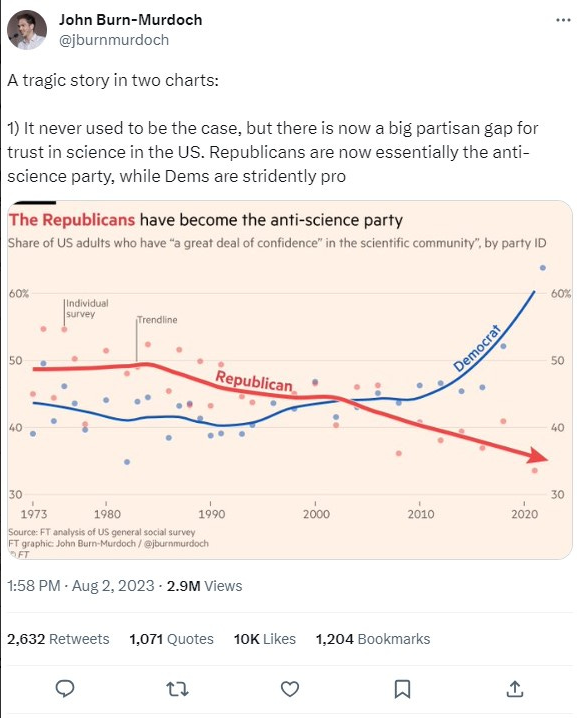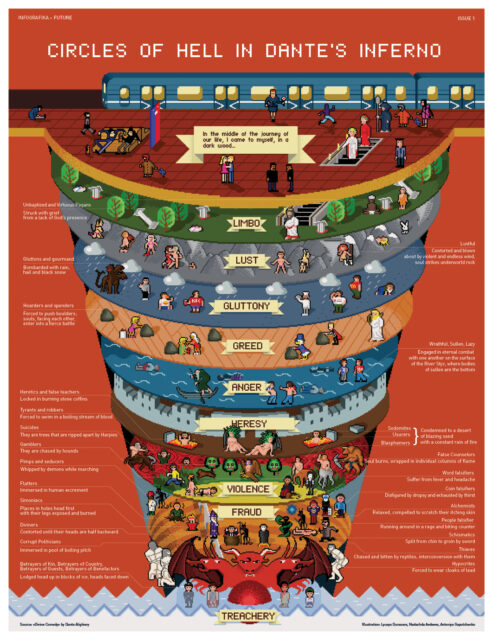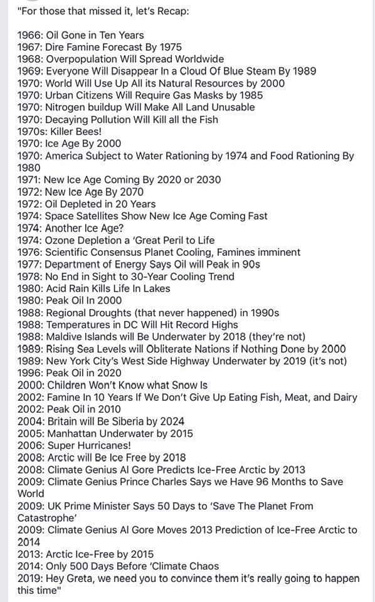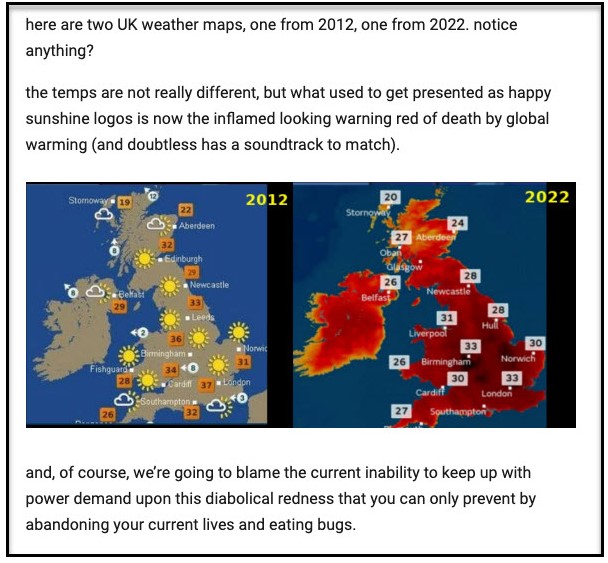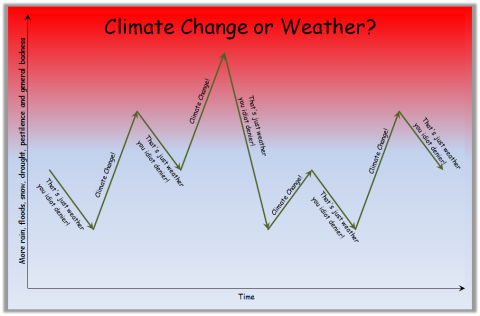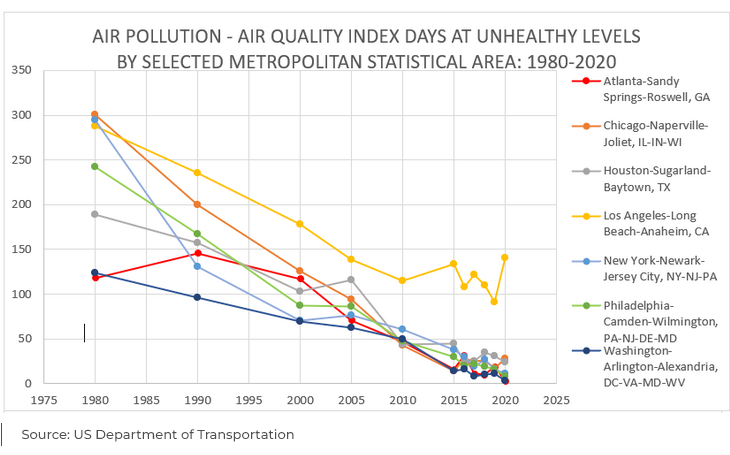Remember when [your local TV station/newspaper] was blaring the alarming news that your [city/town/state/province] was warming at twice the rate of everything else? All the legacy media NPCs got the same patch at the same time — and it was blatant enough that most people realized it was utter bullshit. As Brendan O’Neill explains, they’re not normally quite so clumsy in their constant attempts to gaslight us all about the climate, but they’re definitely still doing it:
Picture the scene. You’re in London, the sky is menacingly grey, it’s drizzling. You zip your jacket against the elements, annoyed that Britain has just had one of its wettest Julys since records began. Then you reach for your copy of the Evening Standard as you head home from work, only to see splashed across the front page a Photoshopped image of the Earth on fire. “WHO WILL STOP EARTH BURNING?”, the hysterical headline asks. The drizzle turns to rain and you fold your Standard in two to use as an impromptu umbrella, turning a mad piece of global-boiling propaganda into flimsy protection from this strange, wet summer.
This was London yesterday. It really happened. It was yet another overcast day, in keeping with the record-breaking precipitation of the past month. The UK had an average of 140.1mm of rain in July, the sixth-highest level of July rainfall since records were first kept in 1836. And yet here was the freebie London paper warning us that flames will shortly engulf our celestial home. That heat death is coming. That an inferno of our own dumb making is licking at our feet. I know we live in mad times but even I never expected to see damp commuters brushing raindrops off their shoulders while surrounded by discarded papers telling us it’s so hellishly hot we might all soon die. Rarely has the gap between MSM BS and real life felt so cavernously vast.
They’re lying to us. Forget global boiling, the crazy term invented by UN chief António Guterres a couple of weeks ago. Forget global warming, even. It’s global gaslighting we should be worried about. If gaslighting, in the words of the Oxford dictionary, is “the process of making somebody believe untrue things in order to control them”, then that lunatic Standard cover was classic gaslighting. The planet is not on fire. Earth is not burning. These are untruths. This is delirium, not journalism; fearmongering, not fact-gathering. And the aim, it seems to me, is to try to control us; to frighten us with pseudo-Biblical prophesies of hellfire and doom until we obediently bow down to the eco-ideology.
Adding insult to injury, the Standard frontpage had pics of Joe Biden, Xi Jinping, Narendra Modi and Rishi Sunak next to its crackpot query, “WHO WILL STOP EARTH BURNING?”. Let’s leave to one side that President Biden doesn’t seem to know what planet he’s on half the time, never mind being able to save one; and that Rishi can’t even control Britain’s borders, far less the climate of our entire mortal coil; and that Xi and Modi are surely more concerned with their pursuit of economic development than with indulging the End Times hysteria of the Notting Hill set that writes and publishes the Standard. The more pressing point is this: no one needs to stop Earth from burning because Earth isn’t burning. You can’t put out a fire that doesn’t exist. As Bjorn Lomborg said last week, the idea that the “world is ablaze” is pure bunkum.

